Publishing ethics
The basis of the Ethical Rules for Scientific Publications, adopted in the journal "Iqtisodiyot va ta'lim", are:
- Elsevier publishing ethics guidelines;
- provisions developed by the Committee on Publication Ethics (COPE);
- norms "Copyright" of the Civil Code of the Republic of Uzbekistan.
Ethical guidelines for scientific publications
1. Introduction
The publication of materials in peer-reviewed journals is not only one of the main methods of scientific communication, but also makes a significant contribution to the development of the relevant field of scientific knowledge. Thus, it is important to establish standards of ethical conduct for all parties involved in the publication, namely: Authors, Journal Editors, Reviewers, and Publisher.
2. Duties of Editors
2.1. Decision to publish
The decision to publish should always be based on the reliability of the work in question and its scientific significance. When deciding on publication, the Editor must be guided by the policy of the Editorial Board of the journal and legal requirements. The Editor can consult with other Editors and Reviewers when deciding to publish.
2.2. Decency
The editor should evaluate the content of the manuscripts regardless of race, gender, religious beliefs, origin, citizenship, official position, or political preferences of the Authors.
2.3. Confidentiality
The Editor and the Editorial Board are obliged not to disclose information about the accepted manuscript to other persons without necessity, except Authors, Reviewers, possible Reviewers, other Scientific Advisers, and the Publisher.
2.4. Disclosure Policy and Conflicts of Interest
2.4.1 Unpublished data obtained from submitted manuscripts cannot be used in personal research without the written consent of the Author. Information or ideas obtained during the review and associated with possible benefits must be kept confidential and not used for personal gain.
2.4.2 Editors should recuse themselves from consideration of manuscripts (namely: ask the deputy editor, assistant editor or other members of the Editorial Board to review the manuscript and decide on its publication) in case of conflicts of interest due to competitive, joint and other interactions and relationships with the Authors, companies, and possibly other organizations associated with the manuscript.
2.5. Supervision of publications
An editor who has provided compelling evidence that statements or conclusions presented in a publication are erroneous should inform the Publisher about it for prompt notification of changes, withdrawal of the publication, expressions of concern, and other relevant statements.
3. Responsibilities of Reviewers
3.1. Influence on the decisions of the Editorial Board
Peer review helps the Editor to decide on publication and through appropriate interaction with Authors, and can also help the author to improve the quality of work. Peer review is an essential link informal scientific communication that underlies the scientific approach.
3.2. Performance
Any selected Reviewer who feels insufficiently qualified to review the manuscript or does not have enough time to quickly complete the work should notify the Editor and ask to be excluded from the review process of the corresponding manuscript.
3.3. Confidentiality
Any manuscript received for review should be treated as a confidential document. This work may not be opened and discussed with anyone not authorized by the Editor.
3.4. Manuscript requirements and objectivity
The reviewer is obliged to give an objective assessment. Personal criticism of the author is unacceptable. Reviewers should express their opinions clearly and reasonably.
3.5. Recognition of primary sources
Reviewers should identify significant published works that are relevant to the topic and not included in the bibliography of the manuscript. Any statement (observation, conclusion, or argument), published earlier, in the manuscript must have a corresponding bibliographic reference. The Reviewer should also draw the Editor's attention to any significant similarity or overlap between the manuscript in question and any other published work within the scope of the Reviewer's scientific competence.
3.6. Disclosure Policy and Conflicts of Interest
3.6.1 Unpublished data obtained from submitted manuscripts cannot be used in personal research without the written consent of the Author. Information or ideas obtained during the review and associated with possible benefits must be kept confidential and not used for personal gain.
3.6.2. Reviewers should not participate in the review of manuscripts in the event of conflicts of interest due to competitive, collaborative, and other interactions and relationships with any of the authors, companies, or other organizations associated with the submitted work.
4. Obligations of Authors
4.1. Requirements for manuscripts
The authors of the article should provide only reliable results of the study. The underlying data must be presented without errors. The work should be sufficiently detailed and contain a sufficient number of bibliographic references to ensure the verifiability of the results. False or knowingly wrong statements are perceived as unethical behavior and unacceptable.
4.2. Data access and storage
If necessary, the Editor may request from the Authors for raw data relevant to the manuscript. Authors should be prepared to provide public access to this kind of information, and in any case, should be prepared to retain this data for an adequate time after publication.
4.3. Originality and plagiarism
4.3.1 Authors should ensure that the complete original work is presented and, in the case of using works or statements by other Authors, should provide appropriate bibliographic references or extracts.
4.3.2 Plagiarism can exist in many forms, from presenting someone else's work as the author's to copying or paraphrasing significant parts of someone else's work (without attribution) to claiming rights to the results of someone else's research. Plagiarism in all its forms is unethical and unacceptable.
4.4. Plurality, redundancy, and simultaneity of publications
4.4.1 In general, an author should not publish a manuscript largely devoted to the same research in more than one journal as an original publication. Submission of the same manuscript more than
than a single magazine is perceived as unethical behavior and unacceptable.
4.4.2. In general, the author should not submit a previously published article for consideration to another journal.
4.4.3. Publishing a particular type of article (eg, translation) in more than one journal is ethical in some cases, provided certain conditions are met. Authors and Editors of interested journals must agree to a secondary publication that necessarily presents the same data and interpretations as in the originally published work. The second publication should refer to the first publication.
4.5. Recognition of primary sources
The contributions of others should always be recognized. The authors should cite publications that are relevant to the performance of the work presented. Data obtained through personal contact, for example, in the course of the conversation, correspondence, or in the course of discussion with third parties, should not be used or presented without the explicit written permission of the source. Information obtained from confidential sources, for example, during the review of manuscripts or the consideration of grant applications, should not be used without the express written permission of the Authors of the work.
4.6. Authorship of the publication
4.6.1 The authors of the publication can only be persons who have made a significant contribution to the formation of the concept of the work, development, execution, or interpretation of the presented research. All those who have made significant contributions should be designated as Contributors. In cases where research participants have made a significant contribution in a particular direction in a research project, they should be listed as persons who have made a significant contribution to this research.
4.6.2. The author must make sure that all participants who made a significant contribution to the research are represented as Co-Authors and are not cited as Co-Authors of those who did not participate in the study, that all Co-Authors have seen and approved the final version of the work, and agreed to submit it for publication.
4.7. Disclosure Policy and Conflicts of Interest
4.7.1 All Authors are required to disclose in their manuscripts financial or other existing conflicts of interest that may be perceived to have influenced the results or conclusions presented in the work.
4.7.2 Examples of potential conflicts of interest that must be disclosed include employment, consulting, shareholding, royalties, expert advice, patent application or registration, grant participation, and others. Potential conflicts of interest should be disclosed as early as possible.
4.8. Substantial errors in published works
If the author discovers significant errors or inaccuracies in the publication, the Author must inform the Journal Editor or Publisher and, together with the Editor, make every effort to correct the errors or remove the publication as soon as possible. If the Editor or Publisher receives information from a third party that the publication contains material errors, the Author is obliged to remove the work or correct the errors as soon as possible.
5. Obligations of the Publisher
5.1 The Publisher must follow principles and procedures to facilitate the conduct of ethical responsibilities by Editors, Reviewers, and Authors by these requirements. The publisher must be confident that the potential advertising revenue does not influence the Editors' decisions.
5.2. The Publisher should support the Journal Editors in addressing ethical claims of published material and help interact with other journals and/or Publishers if this contributes to the Editors' duties.
5.3. The publisher should promote good research practice and implement industry standards to improve ethical guidelines, retirement procedures, and error correction.
5.4 The publisher should provide appropriate specialized legal support (opinion or advice) if necessary.


















 CEDR.UZ
CEDR.UZ TSUE.UZ
TSUE.UZ Telegram
Telegram